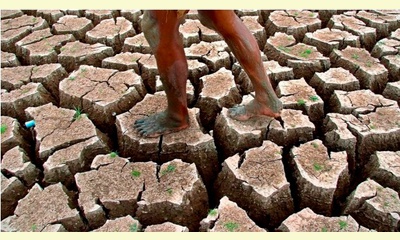|
|
Legislators from 80 Countries Meet in Mexico City to Push for UN Climate Deal in 2015
un article par Parliamentarians Network for Conflict Prevention
Members of Parliament from over 80 countries met between June 6-
8 at the second World Summit of Legislators, hosted by the Mexican
Congress and organized by the Global Legislators Organisation
(GLOBE). They came together in order to politically test a new model
for an international climate change agreement that has national
legislation at its heart. 
Photo courtesy of Joshua Wiese.
click on photo to enlarge
“Now is the time for lawmakers and parliaments to intervene
decisively in the international process,” they state in their final
resolution to support UN efforts to develop a global greenhouse gas
cutting deal in 2015.
PN member Saber Hossain Chowdhury MP from Bangladesh
participated in the Second World Summit of Legislators in Mexico
City. Thomson Reuters Foundation spoke to him:
Bangladeshi parliamentarian Saber Hossain Chowdhury is no
stranger to U.N. climate change negotiations - he was at the big
summits in Copenhagen in 2009 and in Cancún the year after. He
believes it's important for elected politicians to attend because
they're able to put a much-needed human face on the numbers and
complicated jargon that dominate the process.
"The point you make is that I am someone who is actually
representing the people, and you have no idea of the extent and
amount of suffering they will go through even at a 2 degrees
Celsius rise (in global temperatures)," he told Thomson Reuters
Foundation.
His own constituency in the capital city Dhaka is vulnerable to
flooding. But across Bangladesh, the full spectrum of climate
change impacts is evident, from droughts and storms to rising seas
and melting Himalayan glaciers, Chowdhury said. That is why the
South Asian nation has been so proactive in pushing forward efforts
to help poor communities adapt, and finding ways to pay for those
efforts.
It helps that there is cross-party consensus on climate action in
Bangladesh. The All Party Parliamentary Group on Climate Change
and Environment, which Chowdhury chairs, gives advice to the
substantial Bangladesh delegation before the U.N. talks, which
strengthens its position, he said. […]
To read the full article on the website of Thomson Reuters
Foundation, please click here.
|








|
DISCUSSION
Question(s) liée(s) à cet article:
Despite the vested interests of companies and governments, Can we make progress toward sustainable development?
* * * * *
Commentaire le plus récent:
[responding to CPNN article The film 'Demain', a manifesto?
Yes initiatives from the grassroots are important and necessary which will have a direct impact on the present and the future. But there are governments like India which are conscious of over exploitation of the earth’s resources and are taking suitable policy measures and also taking legal action against the exploiters.
We must emphasize public transportation and reduce our dependence on individual cars even though the auto industry will not like this.
Otherwise it is not demain but aujourdhui — the problems are there for us to see.

|
|









